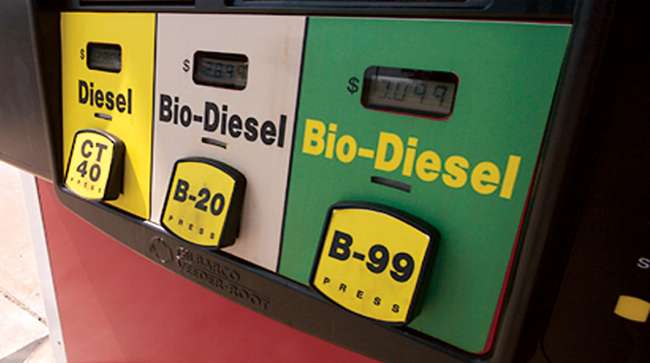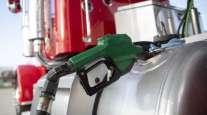Senior Reporter
CARB Approves Amendments to Reduce NOx Emissions in B20 Biofuels

[Stay on top of transportation news: Get TTNews in your inbox.]
The California Air Resources Board has conditionally approved a slate of regulatory amendments intended to more closely monitor the additives blended into B20 biodiesel that so far have not been deemed effective at mitigating oxides of nitrogen in the alternative diesel fuel.
However, opposition from biodiesel industry representatives persuaded the board to invoke its 15-day rule, giving CARB Executive Officer Richard Corey discretion to tweak the rule before it becomes official.
“I’m frankly a little taken aback by the response from our many friends and constituents in the biodiesel industry in this one,” CARB Chair Mary Nichols said. “I don’t think that was certainly where we started.”
Board considers proposed amendments to commercialization of alternative diesel fuels #LCFS
➡ https://t.co/m9uTangjle
https://t.co/0rd5ojOzZn pic.twitter.com/CdwDOQjjrJ — CARB (@AirResources) April 23, 2020
In an April 23 presentation to the CARB board, staff members said that recent testing conducted by the University of California-Riverside on six additives to B20 biodiesel showed they failed to “effectively mitigate to the regulatory standard.”
“The test results raise significant questions both as to the specific additives addressed by the testing, and regarding how best to ensure appropriate performance of additives and formulations generally under CARB’s Alternative Diesel Fuel regulation going forward,” the university testers reported.
The university testing raised significant questions after six specific additives were tested, leaving the state’s environmental regulators pondering how best to ensure appropriate performance of additives and formulations generally under the ADF regulation going forward.

CARB’s alternative diesel fuels regulation, originally adopted in 2015, governs the introduction and use of B20 biodiesel, which currently accounts for from one-fourth to one-third of all biodiesel on the California market, according to Jim Guthrie of CARB’s Industrial Strategies Division.
“Biodiesel is one of the low-carbon fuels that has greenhouse gas emission benefits, and also has particulate matter benefits,” Guthrie told board members attending the April 23 virtual meeting. “However, biodiesel use in limited circumstances has been shown to increase NOx emissions, leading to air quality and public health impacts.”
NOx emissions from B20 biodiesel additives tend to be higher in older engines, according to CARB.
The modification to the regulation, which becomes effective Jan. 1, calls for biodiesel fuel blending and emissions testing to be observed by independent state-licensed professional engineers at two emissions-testing labs, and tougher chain of custody requirements.
While the new regulation is aimed at biodiesel producers, truckers care about what is dumped in the biodiesel fuels they use, said Glen Kedzie, environmental affairs counsel for American Trucking Associations.
“Fleets pay dearly to reduce NOx emissions, and we don’t want to pay more for advanced technologies to offset NOx increases from the use of biodiesel,” Kedzie told Transport Topics.
Biodiesel producers at the meeting spoke in opposition to the amendments, saying they were too hastily produced and could harm their businesses.

Much of the trucking industry relies on older onboard technology for critical functions, which can hurt reliability and efficiency. So is it time for fleets and their technology vendors to implement faster replacement cycles for onboard tech? Seth Clevenger talks to Ray Greer of Omnitracs and Deryk Powell of Velociti. Hear a snippet, above, and get the full program by going to RoadSigns.TTNews.com.
“We have never been opposed to a CARB rulemaking or amendment package,” Scott Hedderich, executive director at Renewable Energy Group Inc., told the board. “More time is needed to get this amendment right.”
Hedderich said the agency’s math used to calculate blends is wrong, the two-lab testing requirement is unprecedented, lab costs are excessive, and the new requirement reflects a lack of understanding of the market.
“We are concerned primarily with two issues about the ADF rule as it may present barriers to our business,” Mary Solecki, representing World Energy, told the board. “These issues are the proposed blender issue and the dual lab certification.”
The Truck and Engine Manufacturers Association also opposed the amendments.
“Engine manufacturers remain concerned that the use of alternative fuels will negatively impact engines’ ability to demonstrate compliance with in-use emission requirements and onboard diagnostic requirements given the potential disparity in fuel properties between alternative fuels and California petroleum diesel fuel,” EMA wrote in comments to CARB earlier this year. “The lack of any evaluation of the long-term emissions influence of alternative fuels, during the development of both the previous rulemaking and the January 2020 proposal, continues to raise significant concerns.”
Said Mike Tunnell, ATA’s director of environmental affairs and research: “I find it really interesting that CARB is focused on NOx reduction from biodiesel. In effect, they’re limiting biodiesel use in California, where other states before the whole coronavirus outbreak we saw legislation looking at increasing biodiesel to B20.”
Want more news? Listen to today's daily briefing:



